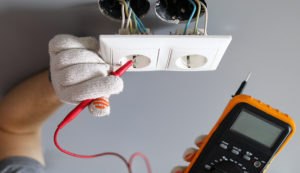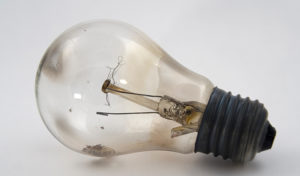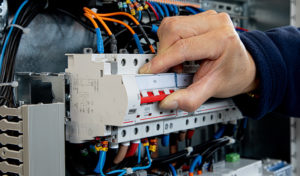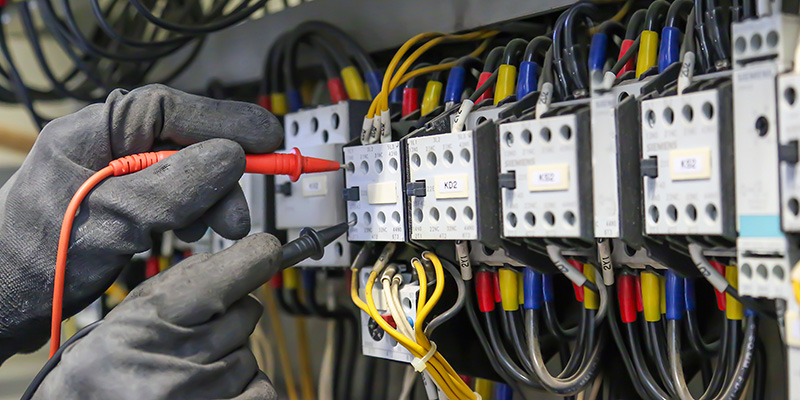It is part of every owner’s job to maintain all the elements of their commercial property, including the electrical system. But, how do you know which problems to watch out for? Here are the most common electrical problems in commercial buildings.
Electrical Problems in Commercial Establishments and How to Fix Them
Commercial properties typically house tenants, workers, and customers. To ensure continued operations, property owners should make it a point to inspect all aspects of the property and make any necessary repairs. This normally includes HVAC maintenance, plumbing maintenance, and general cleaning. But, because owners tend to focus on what’s clearly visible, things under the hood — like electrical systems — often get left by the wayside.
Here are the most common commercial electrical problems and how to address them.
1. Blinking Lights
Dimming or blinking lights could be a small issue, requiring only a replacement bulb. But, if the underlying cause is more serious, flickering lights could trigger a fire accident within the commercial property. Because it is hard to determine which scenario it is from just one look, property owners should inspect flickering lights at the first sign of it.
One of the most common reasons lights will start to dim or blink is due to a loose connection. In this case, though, you will notice sparks in addition to the bulb flickering or dimming. When left unrepaired for a long time, sparks can cause irreversible damage to the whole electrical system.
One of the lesser common reasons lights will start to dim or blink is due to a faulty bulb. In this case, the recourse is much simpler. All you need to do is replace your LED or fluorescent tube. Most electrical maintenance and repair work requires the services of a trained professional. Replacing bulbs, though, is something you can do on your own. Still, it is recommended to hire an electrician to ensure effective work and safety.
2. Dead Outlets
 While this is an issue more commonly seen in older establishments, dead outlets can still occur in newer buildings. Dead outlets are not inherently dangerous, but they can greatly inhibit productivity and enjoyment. It could also indirectly cause the tripping of breakers. If one of the outlets is not working, people will find another and plug all of their devices or appliances into that one instead. This will lead to circuit breakers tripping more frequently.
While this is an issue more commonly seen in older establishments, dead outlets can still occur in newer buildings. Dead outlets are not inherently dangerous, but they can greatly inhibit productivity and enjoyment. It could also indirectly cause the tripping of breakers. If one of the outlets is not working, people will find another and plug all of their devices or appliances into that one instead. This will lead to circuit breakers tripping more frequently.
Dead outlets can spring up for a number of reasons. The most common one, though, is due to circuit overload. If too many high-wattage appliances or devices are plugged into a single socket, it will overheat. Again, this will lead to a circuit overload and trip the breaker. It could also burn the live wire itself, causing it to disconnect.
If you run into this electrical issue, you should have an electrician take a look. Depending on the severity of the damage, your electrician will either recommend repairing some parts or replacing the entire outlet altogether. It is imperative that you ask for high-quality materials each time. Lower-quality products may be cheaper, but they will only shorten the lifespan of your electrical system and may even cause further damage.
3. Faulty Wiring
Another one of the most common commercial electrical issues is faulty wiring. How exactly do you spot faulty wiring when electrical systems tend to hide behind walls? The answer is simple — use your sense of smell. The next time you turn on your lights, see if you can identify a burning smell. This is a sign of faulty wiring.
Faulty wiring can refer to a lot of things. It could be due to outdated electrical wires, damaged electrical wires, or poorly installed electrical wires. If you fail to maintain your electrical wires, it could also lead to faulty wiring. Another sign to get your wiring checked is when your fuses break more often.
If you have outdated wiring, it is time to replace them, especially if you plan to install new lighting fixtures. Keep in mind that some newer models tend to reach higher temperatures than older ones, and outdated wiring may not be able to take the extra load. When left unaddressed, this could result in a fire accident.
4. Lightbulb Burnout
 It is common for lightbulbs to burn out every once in a while. But, when it starts to happen more frequently, get it checked at the soonest possible time. The underlying cause could be due to a poor electrical connection. Loose connections can significantly cut the lifespan of lightbulbs, resulting in more costly expenses on your part. In that case, have an electrician inspect your system and make needed repairs.
It is common for lightbulbs to burn out every once in a while. But, when it starts to happen more frequently, get it checked at the soonest possible time. The underlying cause could be due to a poor electrical connection. Loose connections can significantly cut the lifespan of lightbulbs, resulting in more costly expenses on your part. In that case, have an electrician inspect your system and make needed repairs.
All kinds of lights burn out over time, particularly if you overuse them. If you find that this occurs in your commercial establishment, perhaps it is time to consider other lighting options. For instance, installing more windows will allow natural light to enter the facility. This will not only help you save money on energy but also give occupants much-needed sunlight exposure.
5. Messy Electrical Panels
A disorganized electrical panel can be an eyesore. But, did you know it can also lead to electrical problems? When you have a clean and neatly organized electrical panel, you can cut power to specific areas of your commercial property at a moment’s notice. This ensures you stop the problem before it spreads without cutting power to the entire building.
Take a look at your electrical panel and see if you can identify which area each one is connected to. If you can’t identify it immediately, then there is a good chance you need to have it organized professionally. An electrician can help you with this, too.
6. Overcrowded Wiring
When talking about electrical problems in commercial buildings, it is hard to leave out overcrowding. When you have overcrowded wiring, all the wires running behind drywall come through a single opening. This will cause wires to rub against each other, damaging them in the process. Over time, the damage can multiply, exposing the copper wiring underneath the insulation and putting the entire building and its inhabitants at risk of fire.
7. Tripping Circuit Breakers
 Circuit breakers are electrical switches designed to protect the electrical system from damages caused by short-circuiting. They are essentially safety systems. But, a circuit breaker can only handle so much electricity. Too much flowing through it will cause it to trip.
Circuit breakers are electrical switches designed to protect the electrical system from damages caused by short-circuiting. They are essentially safety systems. But, a circuit breaker can only handle so much electricity. Too much flowing through it will cause it to trip.
To prevent this from happening, you need to go to the root cause. Generally speaking, there are three common reasons why too much electricity would flow through a system: ground faults, overloads, and short circuits. An electrician can help you address each one and ensure the safety and security of your commercial property.
The Smartest Decision You Can Make
It is not uncommon to encounter electrical problems in commercial properties. While you can perform corrective maintenance on most of these, preventive maintenance is still the better option if you want to save money and prolong the lifespan of your assets. Whichever you need, though, make sure to have a professional electrician to handle the job.
Maintenance Specialists, Inc. provides electrical maintenance and repair services to commercial properties in the Charlotte area. Call us today at 704.405.6000 or contact us online to learn more about how we can help you.
RELATED ARTICLES:
- 9 Reasons Why Parking Lot Striping Is Important For Commercial Establishments
- Preventive Maintenance Schedules For Commercial Properties You Can Follow
- What Is Facilities Maintenance? And How Can It Benefit Commercial Establishments?

